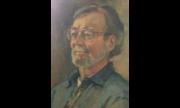Peter Ackhurst obituary
Tony Belton
Peter Ackhurst spent seven exciting years as a councillor in Wandsworth in the 1970s. Portrait: Brenda Holtam

My friend Peter Ackhurst, who has died aged 78, was a Labour member of Wandsworth borough council in London in the 1970s, and an architect who from 1985 until 1991 served as director of housing and development for Hammersmith and Fulham borough council.
Peter was born in Louis Trichardt, a small town in Limpopo province, in apartheid-era South Africa. As an English student at Rhodes University in Grahamstown, and national secretary of the National Union of South African Students, he was in conflict with South Africa's formidable Bureau of State Security. He felt he had to escape and, getting a passport at the third attempt, arrived in the UK in 1955.
He settled in Putney, working as a teacher, studying architecture part-time and then joining a local architectural practice, Leslie Gooday. Peter also joined the Putney Labour party in 1963. The timing was fortuitous. Putney had been established as a parliamentary constituency in 1918, and the Wandsworth metropolitan borough created in 1900, and they had both since been permanently Conservative. But in 1964 Labour's Hugh Jenkins became MP for Putney and Labour also won control of the reconfigured Wandsworth borough council, which newly incorporated the working-class area of Battersea.
In 1971, Peter was elected to the council as part of a team of 54 Labour councillors, against six Conservatives. So began an exciting and turbulent seven years, during which Peter was deputy leader 1972-75, chair of the highways committee 1971-72 and chair of policy and finance 1975-78. The Greater London council's proposals for the Motorway Box (a series a high-speed London ring roads) were defeated, a massive construction programme was undertaken, and Wandsworth got modern social services and planning systems. The Thames and Wandle riverside walkways were begun, parks were opened, the Battersea arts centre was created and many other bold initiatives were undertaken.
But there was also the battle over Ted Heath's 1972 Housing Finance Act, when 87 Labour councils held out against government attempts to raise council rents – a fight over control of council housing in which they were eventually defeated.
Peter was a man of great charm, with a lovely voice. He was a delight at any social gathering, with a story or an argument for every occasion. He could be irascible, but had the wit never to remember an argument the following day.
One of Peter's greatest gifts was his extended family: he had two children, Stephen and Gillian, from his first marriage, to Brenda; his second wife, Annie, had three children from a previous marriage, and many grandchildren. He was a terrific and inventive cook and never seemed so much at home as when cooking for friends and family. He was also a keen and gifted amateur artist.
Source: The Guardian, Friday 28 June 2013 17.32 BST
Last Modified: Mon, 08 Aug 2016 14:57:38 SAST

